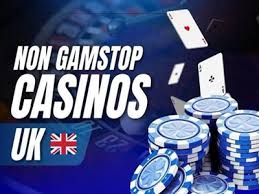
The Transformative Power of Arts in Society
The arts have always been a pivotal part of human existence, serving as a medium of expression, communication, and cultural identity. From painting to music, dance, and theater, each form of art carries the potential to challenge norms, inspire creativity, and unite individuals across diverse backgrounds. As our society grows increasingly complex, the importance of arts in facilitating dialogue and fostering understanding cannot be overstated. [Discover more about arts at https://head4arts.org.uk/]
The Role of Arts in Cultural Identity
Art serves as a reflection of cultural identity, embodying the values, histories, and narratives of a community. Through various artistic expressions, cultures can communicate their distinct stories and experiences, preserving their heritage against the backdrop of globalization. Folklore dances, traditional music, and indigenous art forms signify the richness of cultural diversity. They encourage not only a sense of belonging among community members but also a platform for intercultural dialogue. In a world that often feels disconnected, these artistic practices provide a thread that ties people to their roots and to one another.
Community Building through Arts
Art has a unique ability to bring people together. Community art projects, public performances, and collaborative exhibitions foster social interaction and build relationships among participants. These initiatives often address local issues and provide a space for public discourse. For instance, murals created in underprivileged neighborhoods can instill a sense of pride among residents, transforming a dull facade into a vibrant statement of their shared identity. By galvanizing community involvement, arts play a critical role in strengthening social fabric and promoting civic engagement.
Personal Development Through Artistic Expression
Engagement with the arts can significantly impact personal development. Artistic activities enhance creativity, critical thinking, and problem-solving skills. For individuals, whether young students or adults in professional settings, the process of creating art encourages new ways of thinking and expansion of perspectives. Moreover, participation in the arts can be a therapeutic outlet for self-exploration and emotional processing. Art therapy has emerged as an effective tool for mental health, helping individuals navigate through trauma, anxiety, and depression by facilitating an expression of feelings that may be difficult to articulate in words.
The Digital Age: Arts in a Modern Context

The advent of the digital age has transformed how we create, share, and experience art. Online platforms provide unprecedented access to artistic content, allowing artists to reach global audiences without traditional barriers. Social media has birthed new forms of art driven by collective participation, such as virtual galleries and digital storytelling. As a result, artists can connect with communities across the world, garnering support and new collaborative opportunities. However, the rapid pace of technological advancement also raises questions about authenticity and the commodification of art, as the line between creator and consumer continues to blur.
The Economic Impact of Arts
The arts significantly contribute to the economy, creating jobs and stimulating growth. Creative industries ranging from visual arts to music and film generate substantial income for businesses and cultural institutions. According to various reports, arts and culture sectors have proven resilient, often experiencing growth even during economic downturns. Investments in the arts can lead to urban revitalization, attracting tourism and fostering local economies. Cities that prioritize arts and culture often reap the benefits of increased civic pride, enhanced quality of life, and diversity of offerings that make them more attractive as destinations.
Addressing Social Issues through Arts
Artists have long used their craft as a means of social critique and activism. Through expressive mediums, they highlight pressing social issues such as inequality, discrimination, and climate change. For instance, street art has become a powerful tool for social movements, raising awareness and mobilizing communities towards change. The ability of art to question the status quo and provoke thought is crucial in advancing social justice. By engaging audiences emotionally, artists spark conversations that challenge perceptions and inspire action.
The Future of Arts in Society
As we move forward, the role of arts in society is likely to evolve further. Educational institutions are increasingly recognizing the importance of art education in developing well-rounded, innovative individuals. Emphasizing creativity in schools not only fosters future artists but also cultivates critical thinkers in various fields. Additionally, funding for the arts remains essential. Public policy that supports artistic initiatives can ensure that future generations have access to the richness of cultural experiences. It is imperative that society continues to advocate for the arts, recognizing their invaluable contributions in shaping our world.
Conclusion
In conclusion, the arts are a fundamental aspect of human society, providing a conduit for cultural expression, community connection, and personal growth. As we navigate the complexities of modern life, it is essential to acknowledge and support the role of the arts in fostering empathy, understanding, and resilience. The transformative power of the arts is not only present in cultural institutions but also resonates within every individual, encouraging us all to explore, create, and connect.

